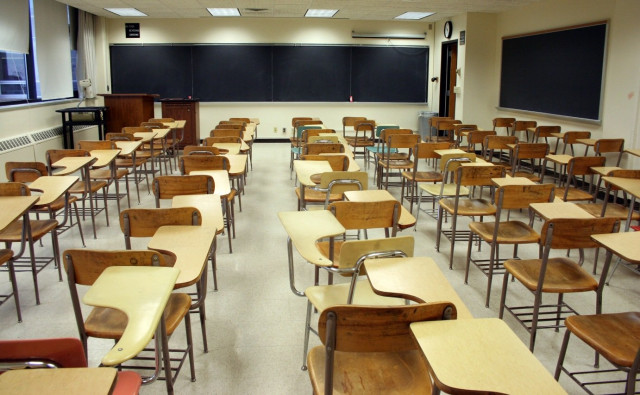Fighting illiteracy: In Battagram, Dutch govt shines a ray of hope
Programme to improve access to and quality of education in schools and madarasas.

A programme to improve the quality of education in schools and madrasas in Battagram district, Hazara, was formally launched by Dutch ambassador Gajus Scheltema on Thursday.
The Dutch government will provide 14 million Euros for the four-year project. Addressing the ceremony, the ambassador said the objective of the programme is to improve access to and quality of education, especially for girls and to expand livelihood and job opportunities for the youth.
The project also aims to help foster a safe learning environment for rural communities.
Scheltema said schools would be built, equipped and teachers e provided rigorous training under the programme.
He said the project will benefit 253,000 inhabitants, around 60 per cent of the total population, including 42,000 children, of whom 24,000 study in schools, 8,000 in madrasas, while 10,000 are out of school.
The ambassador said it was a shame that a mere 26 per cent of girls in the district could read and write, while the rest were illiterate and emphasised community partnership to improve the situation.
“We must not be deterred by the resistance and should continue our efforts to educate the people and change their lives,” he added.
“We will provide substantial financial and technical support for the short term, and we are hopeful that the Battagram district and provincial administration will take full responsibility to ensure free and quality education to all children in the long term,” said the ambassador.
He urged all stakeholders, including the government, civil society and community elders to use the funds judiciously so that the prime target of the programme can be achieved.
Replying to a question, the ambassador said that the project would improve the learning of madrassa students by providing technical assistance.
Titled “Programme for Establishing Partnership and Stability,” the project will be executed by Save the Children, a non-governmental organisation (NGO), in coordination with the Khyber-Pakhtunkhwa (K-P) government.
A memorandum of understanding for the project was signed between Save the Children and the K-P government last month.
Save the Children Country Director Divid Wright said, “Besides providing 32,000 students access to quality education across the district, the project will also provide livelihood opportunities to 31,250 households through various interventions.”
The project marks the second phase of the Dutch government’s initiative to improve the state of education in the province.
A similar project was successfully implemented in the tribal Allai valley of the district after the devastating 2005 earthquake.
Commissioner Hazara, district coordination officer Battagram, and K-P secretary education also attended the ceremony.
Published in The Express Tribune, March 23rd, 2012.













COMMENTS
Comments are moderated and generally will be posted if they are on-topic and not abusive.
For more information, please see our Comments FAQ